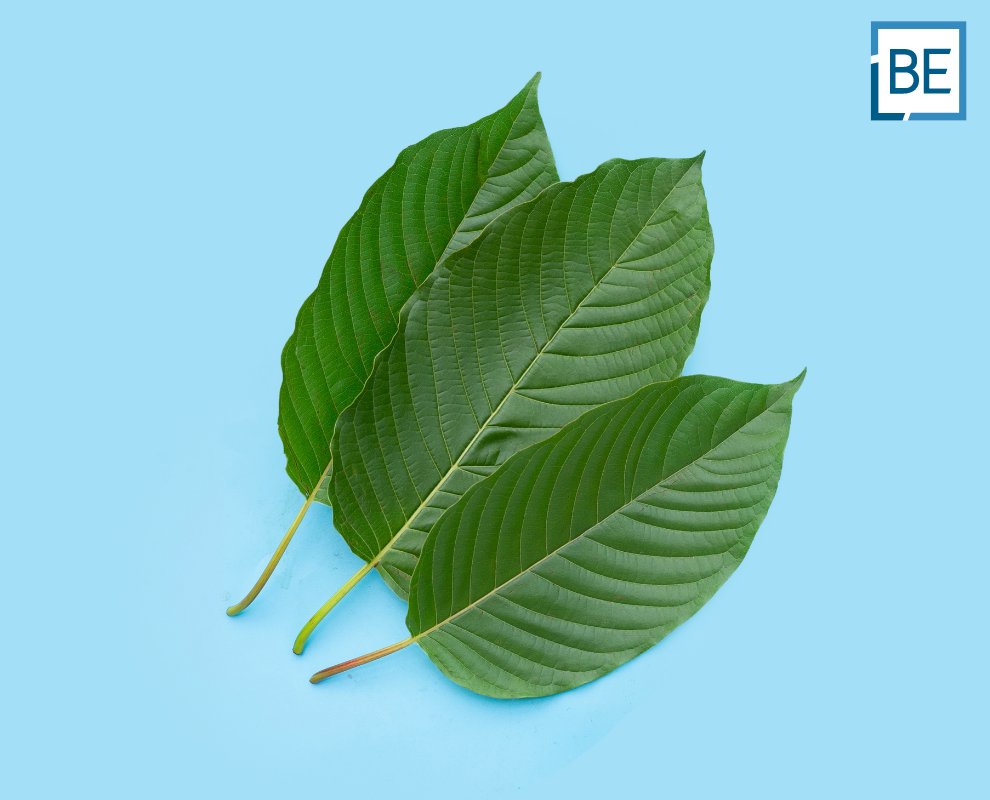Belaws Home ›› Thailand ›› Blog ›› Thailand narcotics act: New legal framework for Kratom in Thailand
News
THAILAND NARCOTICS ACT
New legal framework for Kratom in Thailand
21/09/2022
In 2021, Thailand updated the Narcotics Act (No. 8) B.E. 2564 (2021). As part of this update, Kratom (Mitragyna speciosa), was removed from the list of prohibited substances. This amendment also decriminalised Kratom related offences such as the consumption and possession of Kratom.
On August 27, 2022, the Kratom Plant Act B.E. 2565 (2022) came into effect. This act has been designed to encourage economic activity related to Kratom, by regulating the trade, sale, consumption, study, and advertising of Kratom leaves (alone or as an ingredient in food) in Thailand.
Key points
- Kratom has been removed from Thailand’s list of prohibited substances.
- Possession and consumption of Kratom is now legal.
- Thailand has introduced the Kratom Plant Act in order to regulate economic activity relating to Kratom.
- It is prohibited from selling Kratom to anyone under the age of 18 and/or who is pregnant or breastfeeding.
Importing and exporting Kratom leaves
The Kratom Plant Act states that importing and exporting Kratom leaves without obtaining a licence from the secretary-general of the Narcotics Control Board (NCB) is prohibited.
The following groups are eligible to receive a licence from the NCB:
- Thai nationals over twenty years old and residing in Thailand;
- Juristic persons registered under Thai law;
- Community enterprises under the law; and
- Government agencies.
Once granted, a licence is valid for five years. It is important to note that even though a licence has been granted, importers and exporters must still notify the NCB when importing or exporting Kratom leaves.
However, taking Kratom leaves in and out of Thailand for personal consumption, therapy, and treatment of an illness would be exempted from the requirements mentioned above. Any Kratom leaves taken for international travel must be in accordance with the allowance specified in any relevant ministerial regulations. Should the amount of the Kratom leaves exceed this allowance, it will be considered importing or exporting Kratom leaves, which would be subject to the licensing requirements.
Should some be found in violation of these requirements, they would be subject to imprisonment for up to one year, a maximum fine of THB 100,000, or both.
Selling Kratom
The Kratom Plant Act facilitates the sale of Kratom leaves alone or as an ingredient in food, subject to certain conditions. The following activities are considered as ‘selling’ under the act:
- selling,
- dispensing,
- distributing,
- exchanging,
- or giving the substance to others.
The Kratom Plant Act prohibits the sale of Kratom leaves (or food that contains kratom leaves as an ingredient) to:
- anyone under 18 years old, and
- pregnant or breastfeeding women.
The Kratom Plant Act also allows the Ministry of Justice and the Ministry of Public Health to prohibit selling Kratom to additional persons at a later date.
Any one who sells Kratom must post an announcement at their place of sale (including electronic points of sale) stating that the groups listed above are prohibited from purchasing Kratom. Anyone caught selling Kratom to these groups or failing to post the required announcement or notice could be subject to a fine of up to THB 30,000.
These measures are intended to protect people from the potential harm of consuming or misusing Kratom.
Please note that selling Kratom to the restricted groups above may be allowed only if done for medical or educational purposes. Medical or educational purposes are defined as follows:
- Treatment of disease, therapy, or relief of illness under the supervision of a medical practitioner, dental practitioner, Thai traditional medicine practitioner, or traditional medical professional under the law related to the Thai traditional medical profession; or
- Study, analysis, or research carried out by a government agency that is responsible for conducting medical, pharmaceutical, or scientific research or education, or providing medical, pharmaceutical, or scientific services for the benefit of medical or pharmaceutical, Thai Red Cross Society, or educational institutions.
Are there any other restrictions to selling Kratom?
In additional to the restrictions listed above, it is also prohibited to sell Kratom in the following locations:
- educational institutions,
- dormitories,
- parks,
- zoos,
- amusement parks,
- vending machines,
- or other places specified in announcements by ministers of the Ministry of Justice and the Ministry of Public Health.
Should anyone be caught selling Kratom in these locations, they may be subject to a fine of up to THB 50,000—and up to twice that (i.e., THB 100,000) if the sale is to one of the prohibited parties mentioned above.
While the consumption of Kratom is now legal, it is still prohibited to consume Kratom leaves mixed with narcotic drugs, psychotropic substances, dangerous substances, or any other substance specified by the Ministry of Justice. The exception to this being when done for the specific medical or education purposes given above. Any violation of these is subject to a maximum fine of THB 50,000.
Advertising
The Kratom Plant Act also contains regulations for the advertisement of Kratom in Thailand. Under the Act, the advertising or promotion of the consumption of Kratom leaves mixed with narcotics or psychotropic substances, drugs and dangerous substances, or other designated substances is prohibited. This regulation covers advertisements or any type of marketing communications such as:
- public relations,
- news,
- publishing promotion,
- point-of-sale displays,
- direct marketing,
- sales,
- and online or computer advertising.
Any form of advertising or promotion which violates the Act is subject to imprisonment for a period of up to two years, a maximum fine of THB 200,000, or both.
Furthermore, anyone or any advertising/promotion that aims to convince others (including “encouraging, deceiving, intimidating, improperly influencing, or forcing”) to consume Kratom leaves mixed with narcotic drugs, psychotropic substances, dangerous substances, or other designated substances is also prohibited. Violations of this is subject to imprisonment for up to one year, a maximum fine of THB 100,000, or both.
The penalties for both activities mentioned can be doubled if the violation is committed against persons under age 18, pregnant or breastfeeding women, or any other person designated by the Ministry of Justice or the Ministry of Public Health, for a maximum sentence of imprisonment for two years and a fine of THB 200,000.
What else should I be aware of?
The use of Kratom leaves in certain products can fall under the control of other regulations. For example, using Kratom leaves as raw materials or components of herbal products, drugs, and cosmetics may be subject to specific laws such as the Herbal Product Act, Drugs Act, or Cosmetics Act.
The relevant provisions under the specific legislation will still apply as well as those in the Kratom Plant Act.
How can Belaws help?
While Kratom and the sale of Kratom leaves is now legal, it is recommended to seek local advice from experts before starting any business involving Kratom, due to the complex number of restrictions and requirements applicable.
For more information about how our experts can help you open a business related to Kratom in Thailand, why not talk to one of our experts now?
Please note that this article is for information purposes only and does not constitute legal advice.
Our consultations last for a period of up to 1 hour and are conducted by expert Lawyers who are fluent in English, French and Thai.
Consultations can be hosted via WhatsApp or Video Conferencing software for your convenience. A consultation with one of our legal experts is undoubtedly the best way to get all the information you need and answer any questions you may have about your new business or project.
USD 150
Up to 1 hour
Online payment (Paypal or Credit card)
Legal consultation can be conducted in English, French or Thai
Legal consultations are handled by experienced lawyers from the relevant fields of practice
Frequently asked questions
Is cannabis legal in Thailand?
The production of products containing cannabis is possible for foreign owned entities. However, this is subject to various different licence requirements and obligations depending on the type of product. For example, food products require a licence for food manufacturing from the Food and Drug Administration (FDA).
Cultivation cannabis in thailand
There are no restrictions for the mass cultivation of cannabis as a business operation for Thai entities. Business owners are required to register cannabis cultivation with the FDA through the application “Plook Gan”. However, a foreign entity may be restricted from agricultural activities under the Thai Foreign Business Act.
Can I buy/sell cannabis to smoke with a THC level above 0.2%?
The current laws state that cannabis extracts with a THC level of above 0.2% are illegal. However, the definition of extract is still very unclear.
Generally speaking, cannabis extracts tend to be products made by mechanically extracting and refining parts of the cannabis plant. These extracts are then used to create products such as hash, oils and tinctures. Such extracts tend to contain much higher levels of THC etc than those found naturally in the plant.
Since only extracts with a THC level of >0.2% are considered illegal in Thailand, it seems as though natural leaves and flowers with a higher level of THC are not illegal and can be bought and sold via shops and dispensaries in Thailand.
It is important to note that it is possible to smoke cannabis recreationally in Thailand but only on private property. Smoking publicly is considered a public nuisance. Furthermore, private property does include restaurants and cafes, but they must have a designated place for smoking.
Setting Up a Cannabis Business in Thailand
Both, foreign owned companies and majority foreign owned companies incorporated in Thailand are prohibited from producing, selling, importing, exporting and possessing cannabis.
Distribution of cannabis is only available to companies established under Thai law that have Thai nationals who:
- own at least two-thirds of the company capital and;
- hold at least two-thirds of the director positions.
However, if you satisfy the above criteria and have both ⅔ of the ownership and positions on the board held by Thai nationals, it is indeed possible for your company to produce and sell cannabis and associated products (such as tinctures with less than 0.2% THC).
How to obtain a Cannabis licence in Thailand?
Eligible applicants for a licences relating to cannabis in Thailand include Thai citizens, companies registered under Thai law (with at least two-thirds of directors, partners, or shareholders being Thai nationals), and community enterprises governed under the Community Enterprise Act B.E. 2548 (2005).
For a company, the representative whose name appears on the application (and license, if successful), must be a Thai national who is at least 20 years old, they must also have a domicile or office in Thailand, and must fulfil the basic requirements of legal capacity (i.e., competency) and financial solvency. The representative also cannot be the holder of a licence that is currently suspended or has been revoked under Thailand’s laws on narcotics or psychotropic substances. Finally, they cannot have received a criminal sentence for any violation of these laws.
Related articles
Subscribe today
Subscribe today
To our newsletter for all the latest legal news
in South East Asia, Belaws updates and
special promotions on our services.
To our newsletter today for all the latest legal news in South East Asia,
Belaws updates and special promotions on our services.







